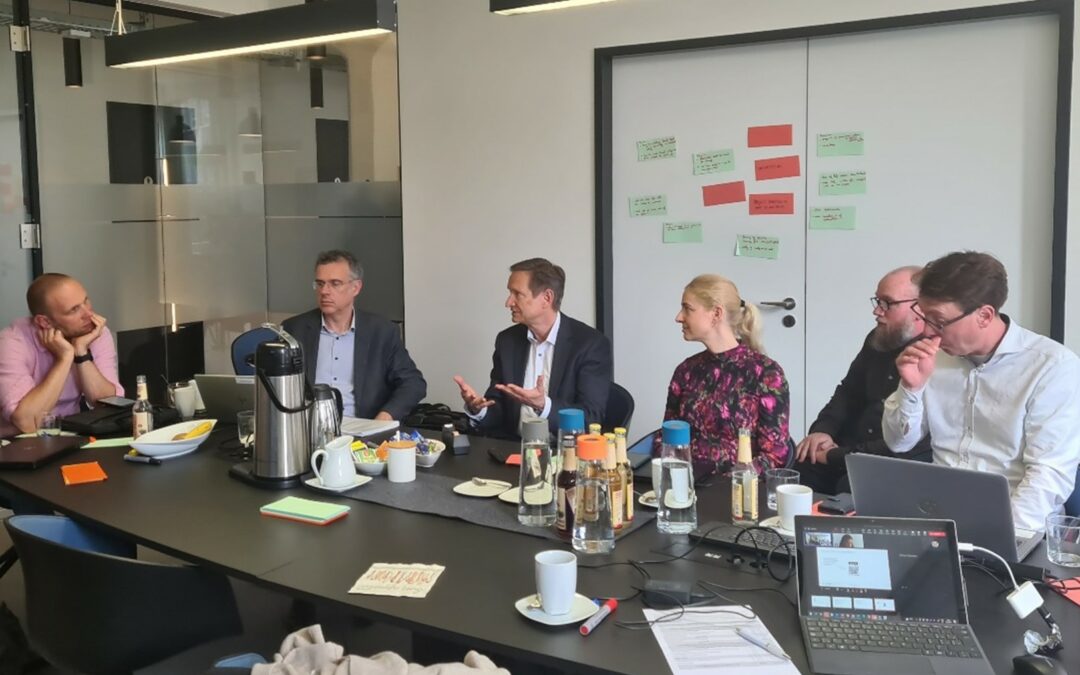One of the four JADECARE workshops on key learnings and sustainability has been hosted at the headquarters of OptiMedis in Hamburg on 11th May 2023 (a special article providing an overview on all JADECARE Key Learning Workshops will be released with the upcoming JADECARE 23-2 Newsletter).
All five next adopters for the Original Good Practice (oGP) “The OptiMedis model – integrated population-based care” participated with their local good practices in the discussions – two of them online. Findings from Estonia, Denmark, France, Belgium and Slovenia were discussed. Very welcome contributions from the Estonian Ministry of Health, the Director of OptiMedis and the Hamburg Ministry of Labour, Health, Social, Family Affairs and Integration highlighted the policy process towards innovation and change.
During the first workshop session participants discussed their appreciation of the implementation process and key learnings: Generally, the site visits and additional discussions in the pre-implementation phase were considered very helpful to better understand the underlying concepts of the oGPs. Also, the online and particularly the physical presence meetings were valued for their networking opportunities and exchange. Generally, the participation in a project like JADECARE is considered to be very beneficial in order to “see and be seen”. Despite the limitations due to the Corona pandemic, the alternative measures taken were highly appreciated. Most participants felt that the implementation phase was too short for the many interventions planned throughout that period. There is a strong interest for shared tools for concrete topics. The need and value of patient data for an initial situation analysis and the follow up of project developments and value added of the interventions were underlined. All participants underlined the importance to engage in an intensive stakeholder process. Rising the interest at that level and keeping stakeholders involved is a precondition for success.
Project sustainability requires a continuous stream of data to evaluate the effects and value added in order to convince stakeholders and policy makers of the intrinsic potentials. Having a political commitment and an established administrative framework for integrated care or multi-professional collaboration helps a lot when defining project interventions. Quite frequently, policies and strategies for improving health and social care are already available but interventions are fragmented. This requires a certain focus on concrete processes rather than only on possible achievements. It is essential to better synchronise the policy making process and to derive more integrated multi-sectoral strategies from there. For that, policy makers need support from project partners to better understand interventions and requirements as well as concrete solutions and potential benefits.
The Hamburg workshop was a very successful event in JADECARE implementation. Jointly with the outcome of other JADECARE work packages it provides helpful insights and perspectives for the sustainability of its activities and for future joint action projects.
JADECARE impacts European health systems by implementing innovative digital integrated care solutions, helping to change the model of care provision in different health system situations. It sets the base to implement large-scale integrated care by delivering know-how to transfer innovative and tailored practices and by generating evidence that aspires to produce benefits beyond the project.
